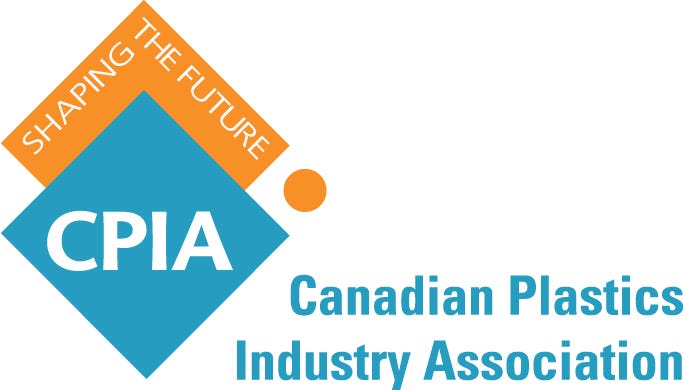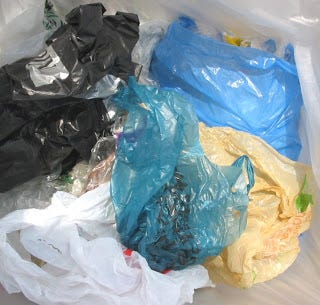Fighting bag bans, encouraging recycling—just another day at CPIA
Montreal, Quebec—When Carol Hochu took office as the president and CEO of the Canadian Plastics Industry Association, she knew she would have her hands full.
November 29, 2012
Montreal, Quebec—When Carol Hochu took office as the president and CEO of the Canadian Plastics Industry Association, she knew she would have her hands full.
"We represent an industry that is largely responsible for the quality of modern life for all Canadians," she told PlasticsToday at Expoplast (November 14-15; Palais des congrès de Montréal; organized by PlasticsToday parent, UBM Canon). "Still, the industry faces several challenges and oppositions."
 CPIA is Canada's version of the Society of the Plastics Industry (SPI). Just like SPI, the organization works to grow the plastics industry to help it reach its full potential, by providing one unified voice.
CPIA is Canada's version of the Society of the Plastics Industry (SPI). Just like SPI, the organization works to grow the plastics industry to help it reach its full potential, by providing one unified voice.
Hochu said the organization has several strategic priorities such as outreach, encouraging second life of plastics, exploring new opportunities and meeting industry challenges.
The organization relies heavily on marketing, public relations and the usage of social media to get its message out, and part of that message is delivering "good" news.
In addition to its own marketing efforts, Hochu said CPIA works closely with the American Chemistry Council (ACC). She said they are highly impressed with ACC's ongoing Plastics Make it Possible campaign.
"Working together provides one voice for the plastics industry in North America," she said. "We work together to defend against product attacks."
One initiative all plastics associations have in common is fighting the plastic bag bans that are taken place all across the world.
Toronto plastic bag ban sacked
If you go to the CPIA website, right in the middle of the homepage is a link directing users to information about the Toronto bag ban that was scheduled to take place on Jan. 1, 2013.
While the city had previously passed a mandatory five-cent fee for plastic bags, in June, the councilors voted to end the tax and place a full ban on single-use plastic bags.
At Expoplast, Hochu did not hide her frustration about the potential ban.
"There's a myth about the plastic bags that is unwarranted and uncalled for," she said. "Why the focus on bags? It makes no sense."
It makes no sense."
To fight the bag bans, CPIA launched its All About Bags website that is designed as a resource tool for the debate about bags. The site states, "plastic shopping bags are not considered a litter problem in Canada. In Canada, plastic shopping bags are a miniscule component of the municipal litter stream."
Litter audit data from major Canadian municipalities show that plastic shopping bags are less than 1% of litter. In fact, the City of Toronto 2006 Litter Audit shows that plastic shopping bags were only 0.13% of the entire litter stream.
CPIA also helps promote the Reverse the Bag Ban coalition, which is mix of environmentalists, manufacturers, recyclers, accountability advocates, trade associations and business associations. The coalition said it is concerned about the "impact on more 5000 jobs in the Toronto and the harmful impacts on the environment if the plastic bag ban is allowed to take effect this coming Jan. 1, 2013."
The coalition released the results of a Toronto city-wide poll of more than 5000 people that stated about 65% of Torontonians opposed banning plastic shopping bags.
Now, after much debate the Toronto councilors decided not to proceed with a ban on single-use plastic bags on Nov. 28. according to CBC News.
In recent weeks leading up to this decision, the city faced legal challenges from the Ontario Convenience Stores Association and the Canadian Plastic Bag Association in regards to the proposed bag ban.
City councilors received confidential legal advice from a solicitor before voting 38-7 Wednesday not to proceed with the ban, CBC reported.
Still, this announcement is not a done deal. The council will revisit this issue in June 2013.
"One of the many problems of these bans is taking away consumer choice," Hochu said. "Another item to consider, if this ban goes through, what is stopping bans from extending to other plastic products?"
Second life
Another important initiative to CPIA is increasing the amount of plastic and the different types of plastic waste being diverted from landfill through the use of various waste management options, such as reuse, recycle and energy recovery.
"This is really one of the keys to the future of plastics," Hochu said. "It's not only good for the environment, it just makes good business sense."
CPIA has published several releases regarding increased recycling rates and new opportunities.
For instance, a recent report showed that when households are provided with an adequate supply of see-through bags, participation is 72% greater and the amount of plastic bags and overwrap and foam polystyrene packaging captured is nearly doubled.
Another report surveyed more 500 companies who handle recycled plastics in North America, including reclaimers, exporters, brokers, MRFs and other handlers of used plastics. The report claims that Canadian recycling efforts have increased the amount of post-consumer plastic packaging being recycled across the country, including an additional 15% of plastic packaging recycled in 2010 compared to 2009.
Hochu said she's happy with the progress, but she knows they have a long way to go.
"There's been great improvement and in the future we're going to continue to work with agencies to increase the awareness of recycling," she said. "But we need to do better with recycling and energy recovery to have a more sustainable future."
About the Author(s)
You May Also Like


